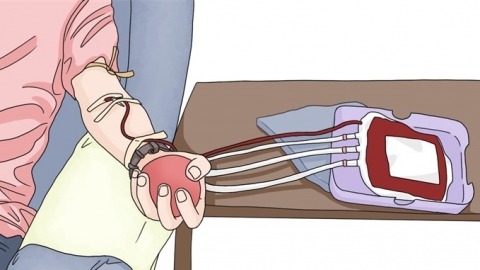Can I get pregnant after donating blood?
When the body recovers well after blood donation and all indicators return to normal, it is acceptable to become pregnant. However, if the individual feels weak after donation, or has anemia or infections, it is not advisable to conceive. Detailed explanations are as follows:

If the physical condition is good after blood donation, without symptoms such as dizziness or fatigue, and routine blood tests show that red blood cell count and hemoglobin levels have returned to normal, this indicates that the body's hematopoietic function has completed blood replenishment. At this point, pregnancy will not affect fetal development or maternal health due to blood donation. Typically, in healthy adults, lost fluids and electrolytes can be quickly restored within about two weeks after blood donation, and blood cell levels return to normal in about one month. This timeframe is generally considered suitable for conception.
If persistent symptoms such as dizziness and pallor occur after blood donation, or blood tests reveal unresolved anemia, it indicates that the body has not fully recovered. Conception at this stage may lead to insufficient nutrient and blood supply to the mother, which could affect fetal growth and development, and may also cause maternal health complications due to the added burden. Additionally, if infection or other illnesses occur after blood donation, or if medications are being taken, the components of these medications may adversely affect the fetus.
For those planning pregnancy after blood donation, it is important to monitor the body's recovery, confirm all indicators are normal through medical examinations, ensure adequate nutrition and rest, and wait until complete recovery before attempting to conceive.










